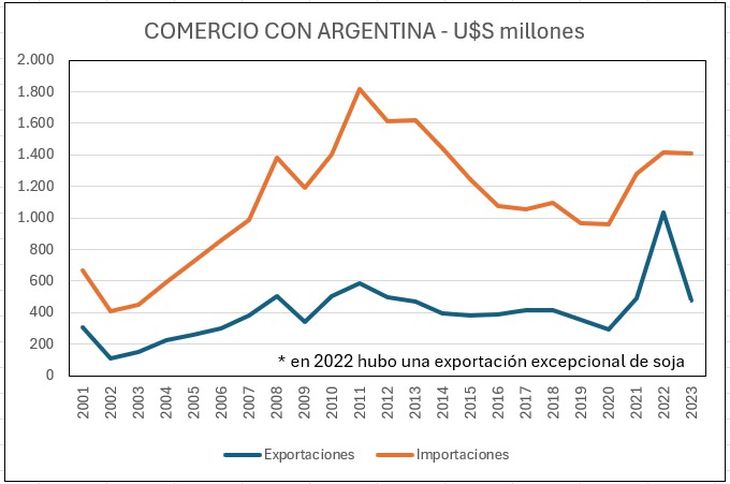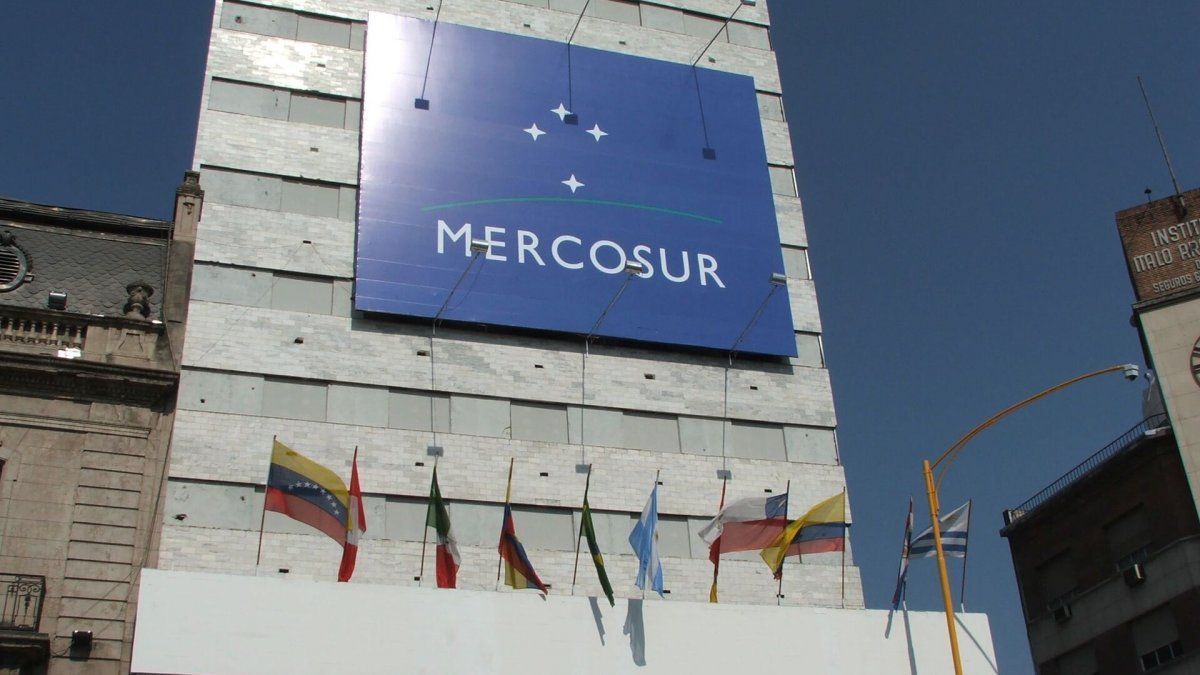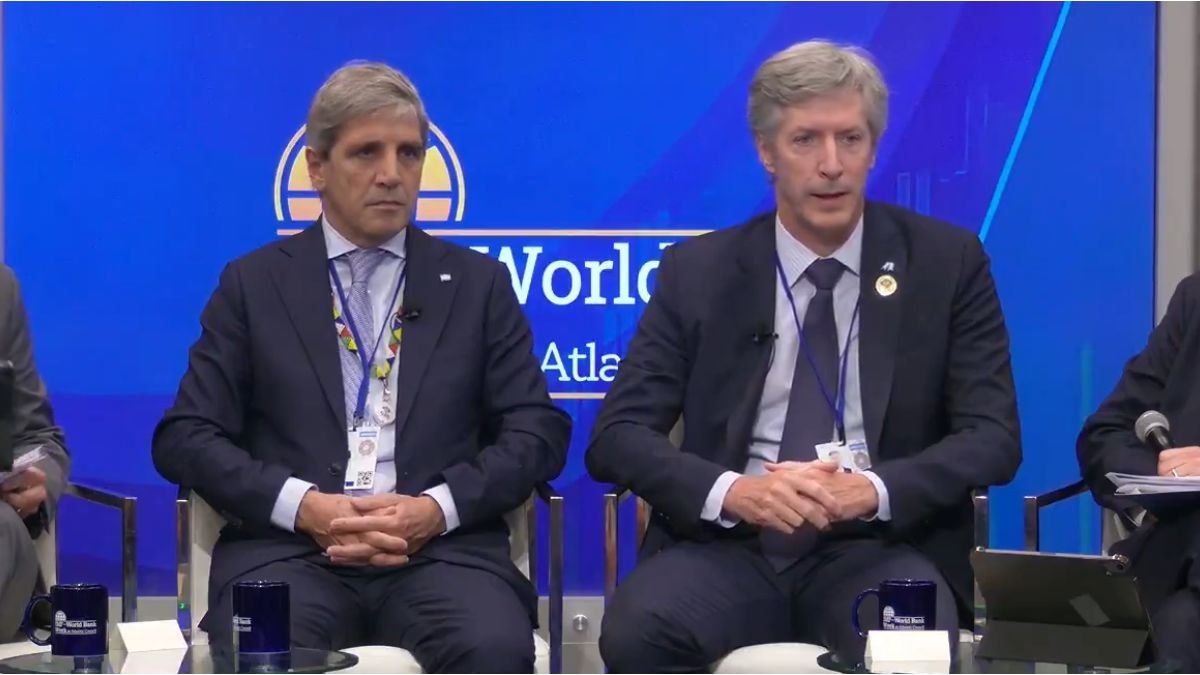These are complex times in relations between countries, if they were not so in the past. For our region, even more so. The tendency towards trade opening and globalization is a thing of the past. Today the world is torn between geopolitical interests and ideological struggles, and countries – especially democratic ones – are suffering from the swaying. Uruguay, In a relatively small country, increasing trade is key to growing its economy and with it the quality of life of its people; but the playing field is complicated.
The difficulties faced Europe in his conflict with Russia, The problems of the Chinese economy and the uncertainty it poses USA, In the midst of the electoral process, the global scenario has few solid points of support. And in this scenario, moreover, South America It is not in the centre; its geopolitical relevance is relatively low (although we would like to think otherwise).
With this global panorama that provides little or no incentive to negotiate trade agreements, Uruguay continues to try to open spaces, with limited luck. In the neighborhood, relations with Brazil They are in a good moment, with concrete advances in infrastructure and in other areas (in the last few hours the decision to buy Brazilian aircraft for the FAU was announced); Argentina Something similar happens, starting with the change of government and the assumption of Javier Milei: more depth in the port, agreements in the making for air navigation, etc.
In the relationship with Brazil, Ideological differences were wisely put aside, due to the stature of Lula Da Silva and Luis Lacalle Pou; helped Pepe Mujicawho acted quickly to bring the presidents together, a few months after the Brazilian elections. With Argentina It can be said that there is more ideological affinity, although Lacalle Pou pointed out to Milei the absence from the summit in Asunción: not like that. Far from being a bravado of a small and stubborn country (as it was also sometimes suggested on the Brazilian side) there is in Uruguay a genuine integrationist conviction. The current government and the previous ones agree on this. The difference is that the current government – which is in its final months – wants to trade more with the rest of the world and that is why it insists that the Mercosur open. And if not, let it advance. Uruguay; each at their own speed.
But, it is known, this clashes with the interests of the neighbors, in particular Brazil, that is far from seeing the Mercosur as a commercial tool and uses it as a platform for political influence. Good for them, but Uruguay This works against it. Our country already began its process of opening up and transforming its industry with its entry into Mercosur in the 1990s. Today it needs to go further, because it has had all the costs of opening up its industry to the region, but few of the benefits of a broader opening.
For example, it is enough to see the trade balance of goods with our neighbors, negative in both cases (graphs). Brazil The exchange has historically been more balanced, but that does not justify preventing Uruguay greater flexibility. It is difficult to accept that Uruguay cannot move forward because of that supposed underlying “threat” that Brazil (perhaps Argentina) will be seriously hurt in its regional influence. It should be the other way around; and the big partners of the Mercosur make it clear to the countries with which there could be an agreement (especially China) that there are no objections to Uruguay progress; but everything indicates that, in reality, the opposite is happening.
WhatsApp Image 2024-07-09 at 08.01.49.jpeg
In Argentina The economic situation is so critical that the new government’s openness to the demands that have been raised must be especially valued. Uruguay. If ports are followed by airports and then gas pipelines, we will have gained years of progress in integration and, in addition, contributed competitiveness to the Uruguayan economy. It is not so clear, however, that Argentina is willing to free us from the corset of Mercosur. That which was so flagrant in times of Alberto Fernandez (which called on the Chinese to block our progress), should be buried with a libertarian government; Chancellor Mondino has expressed herself in the sense of making Mercosur more flexible, but we will have to see how far the concretions go.
WhatsApp Image 2024-07-09 at 08.01.49 (1).jpeg

That being the case, Uruguay has work to do for this pro tempore presidency, but expectations are moderate. Because, in addition, Uruguay There is no full internal consensus. Our country lacks the unanimous free-trade vocation of countries like Chili, New Zelandor others of the same style (there are not that many); the Uruguayan left has a different vision to that of the current government.
Even so, at the start of the pro tempore presidency, Uruguay already proposed resuming the Mercosur dialogue mechanism with China, something that no member of the bloc can reject, despite the distance and confrontation between the governments of Argentina and Brazil. And if there is no consensus, there should be flexibility of action. For Uruguay, this would be transcendental.
Source: Ambito




